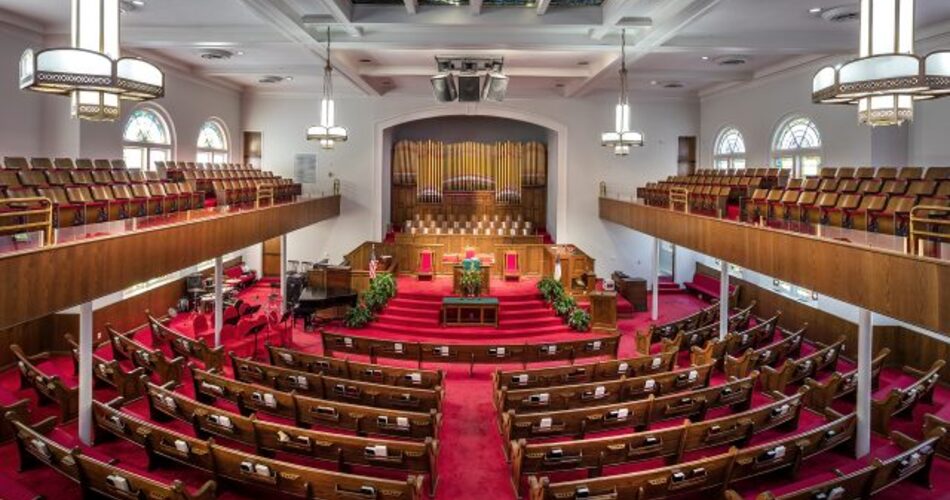From Birmingham, a city whose name is synonymous with the civil rights movement to Montgomery and the story of Rosa Park Alabama is not to be missed
Of all the states, few can compete with Alabama when it comes to historical landmarks, museums and events that shaped the civil rights movement in America. From Martin Luther King Jr.’s church and Rosa Parks’ refusal to give up her bus seat to the Selma from Montgomery march, this southeastern U.S. state offers plenty of opportunities to learn about and be inspired by those who had a powerful impact on our country and its history.
Birmingham Civil Rights Institute
Part of the Birmingham Civil Rights National Monument and an affiliate of the Smithsonian Institution, BCRI is a cultural and educational research center promoting a comprehensive understanding for the significance of civil rights developments in Birmingham. At this state-of-the-art, multi-media facility, you’ll find exhibits from post-World War I racial segregation to present-day racial progress. Since its inception in 1992, the BCRI has put an emphasis on education of the civil rights movement in Birmingham that includes a special focus on helping teachers via an extensive curriculum guide and downloadable lesson plans.
16th Street Baptist Church
Located in downtown Birmingham, this church was the first Black church in the city and served as headquarters for the civil rights mass meetings and rallies in the early 1960s. On Sept. 15, 1963, it would forever be known around the world when a bomb exploded killing four young girls and injuring more than 20 congregation members. This tragedy became a major turning point in the civil rights protest in Birmingham as well as a rallying cry for unity around the country. Hour-long tours explore the 16th Street Baptist Church’s history and stories.
Civil Right Memorial Center
A project of the Southern Poverty Law Center, the Civil Rights Memorial Center honors the martyrs of the movement and inspires visitors to continue the march for racial equity and social justice. Located in Montgomery, just around the corner from the historic church where Martin Luther King Jr. served as pastor (Dexter Avenue King Memorial Baptist Church), the center features state-of-the-art exhibits, educational activities and an original short film that encourages reflection on the power of activism. Before leaving, visitors can take the pledge to work for justice by adding their name to the Wall of Tolerance.
Edmund Pettus Bridge
Declared a National Historic Landmark in 2013, the Edmund Pettus Bridge represents a pivotal point in voting rights. On March 7, 1965, some 600 civil rights marchers were attacked with tear gas and nightsticks by law enforcement officers during the first march for voting rights. Known as “Bloody Sunday,” the televised attacks prompted public support for the civil rights activists in Selma and for the voting rights campaign. After Bloody Sunday, protestors were granted the right to continue marching, and two more marches for voting rights followed.

16th Street Baptist Church
Rosa Parks Museum
Located at the site of Rosa Parks’ famous arrest, the museum is centered on Parks’ story and its place in the Civil Rights Movement. Exhibits and various artifacts provide details about the people behind the boycott as well as the political and social climates of 1950s Montgomery. Visitors can hear the voices of the brave men and women who fought for freedom peacefully and effectively.
National Memorial for Peace and Justice
Opened to the public in 2018, the National Memorial for Peace and Justice is the nation’s first memorial dedicated to the legacy of enslaved Black people, people terrorized by lynching, African Americans humiliated by racial segregation and Jim Crow, and people of color burdened with contemporary presumptions of guilt and police violence. Located in Montgomery, the six-acre memorial was conceived with the hope of creating a sober, meaningful site where people can gather and reflect on America’s history of racial inequality.
Tuskegee Airmen National Historic Site
Through exhibits, audio-visual programs, historic buildings and guided walks, this National Historic Site honors the Tuskegee Airmen, who fought bravely on the battlefields overseas and fought racism at home. The Tuskegee Airmen challenged America’s claim, that “All men are created equal,” while she openly practiced gross racial prejudice.
Civil Rights District
Now a National Monument, Birmingham’s Civil Rights District should be at the top of any visitor’s to-do list. Located in downtown Birmingham, where a number of significant events of the civil rights movement of the 1950s and ’60s occurred, the Civil Rights District includes a number of historical landmarks. The Birmingham Civil Rights Institute offers exhibits on segregation and the civil rights struggle, including ones on the 1955 arrest of Rosa Parks for her refusal to give up her seat to a white man on a Montgomery bus and the U.S. Supreme Court’s bus desegregation ruling in 1956.
If you’d like to Get More Field Trip Ideas, be sure to Subscribe to Student Travel Planning Guide and Download our Current Issue for FREE






